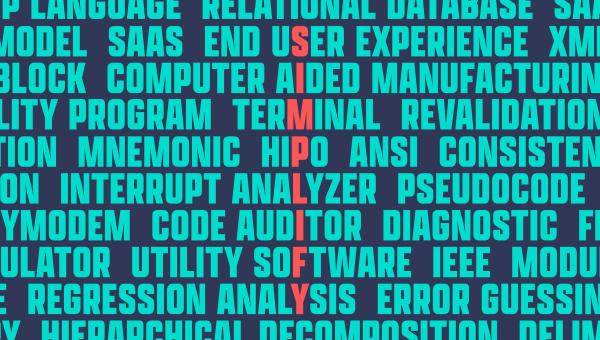How Employers Are Reacting to Digital Credentials: Insights and Perspectives
In today’s rapidly evolving job market, digital credentials have emerged as a game-changer for both job seekers and organizations. As industries shift towards remote work, upskilling, and credential verification that is instantaneous and secure, employers are rapidly adapting their approaches to recognizing, evaluating, and leveraging option forms of certification. In this article, we delve deep into how employers are reacting to digital credentials, highlight leading insights from industry research, and offer actionable perspectives for professionals and HR leaders alike.
What Are Digital Credentials?
Digital credentials are verifiable qualifications, skills, or achievements awarded in a digital form by recognized educators, organizations, or credentialing platforms. Unlike conventional paper certificates, digital credentials such as digital badges, micro-credentials, or blockchain-backed certificates can be instantly shared, validated, and displayed on platforms like LinkedIn or digital resumes.
- Issued electronically and easily shareable
- Often contain metadata verifying the recipient,issuer,and skills acquired
- Reduce risks of fraud compared to paper certificates
Why Are Digital Credentials Gaining Traction?
A growing number of organizations,from innovative startups to Fortune 500 companies,are beginning to value digital credentials as a reliable indicator of skills and knowledge. A few reasons include:
- Speed: Verification is faster, reducing time-to-hire.
- Security: Credentials are harder to forge, especially with blockchain technology.
- Granularity: Micro-credentials allow for validation of specific skills, not just broad degrees.
- Accessibility: More professionals can access reputable upskilling opportunities online.
How Are Employers Reacting to Digital Credentials?
As digital credentials infiltrate the mainstream, employers’ reactions range from excited adoption to cautious scrutiny. here’s what current research and industry reports reveal about their perspectives:
1. Recognition and Adoption in Recruitment
According to a 2024 survey by the World Economic Forum, over 60% of hiring managers worldwide consider digital credentials during their hiring processes. Large corporations in IT,Finance,and Healthcare are especially progressive in this regard. Notable trends include:
- Integrating digital badges in request screening (e.g., Google, IBM, PwC)
- Accepting MOOCs (Massive open Online Courses) certifications for junior to mid-level roles
- Leveraging APIs that connect with digital credential platforms, enabling instant verification
2. Appreciation but Demand for standardization
While the acceptance of digital credentials is on the rise, some employers voice concerns about a lack of standardization. This is especially true for micro-credentials, where course content, provider reputation, and assessment rigor may vary.
“Digital credentials have the potential to revolutionize how we evaluate skills, but we need clearer frameworks and standards for true comparability.”
— Head of Talent Acquisition, fortune 100 Tech Firm
Industry consortiums and standards, such as IMS Global and the Open Badges standard, are working to address this issue.
3. Enhanced focus on Skills-Based Hiring
The shift from degree-based to skills-based hiring is underway, fueled by the transparency digital credentials provide.employers are increasingly prioritizing skills (coding, analytics, language proficiency, cybersecurity, project management, etc.) evidenced by digital micro-credentials over traditional degrees, especially for roles where practical expertise trumps formal education.
- Improved talent matching and reduced screening bias
- Diversification of recruitment pipelines—benefiting career changers and non-traditional candidates
Benefits of Digital Credentials for Employers and Candidates
Digital credentials are not just a plus for applicants; employers stand to gain meaningful advantages too.
For Employers:
- Streamlined verification and onboarding processes
- Reduced hiring fraud and increased trust in applicant claims
- Access to a broader and more diverse talent pool
- Greater agility in meeting changing skills requirements
For Candidates:
- Immediate and global visibility of achievements
- Recognition of informal learning and upskilling efforts
- Ability to curate, update, and personalize professional profiles in real-time
- Reduced barriers to entry for in-demand roles
Case Studies: Digital Credentials in Action
IBM’s Digital Badge Program
IBM has issued over two million digital badges since 2015, validating skills from machine learning to soft skills like leadership. Their commitment to micro-credentialing has helped not only to identify in-house talent for promotion but also to attract external candidates with proven expertise.
Professional Associations
The Project Management Institute (PMI), a global leader in professional certification, now offers digital badges for all its credentialed members. Employers can instantly check the authenticity and currency of these credentials throughout the hiring process.
First-Hand Experiences: What Employers and Employees Are Saying
- Recruiters appreciate digital credentials for their verifiability and speed of evaluation,especially in high-volume hiring.
- HR Managers note that digital badges and certificates promote lifelong learning in their teams,encouraging upskilling and participation in recognized online programs.
- Employees report increased confidence in sharing their expertise publicly, especially on social platforms like LinkedIn.
“Getting my first digital credential changed how I approached my career. It opened doors, led to interviews, and even helped me negotiate a better role after being recognized for new competencies.”
— Software Developer, Berlin
Practical Tips for Job Seekers and HR Leaders
For Job Seekers:
- Highlight digital credentials visibly on your resume, portfolio, or LinkedIn profile
- Prioritize digital credentials from reputable sources and platforms
- Curate your collection—showcase credentials relevant to your target job roles
For Employers and HR Leaders:
- Educate your recruitment teams on the value and interpretation of digital badges and credentials
- Partner with accredited online learning platforms for skills-specific hiring pipelines
- Adopt verification tools/APIs to automate credential checks and reduce administrative time
- Encourage ongoing professional development by recognizing and rewarding digital achievements
Conclusion: The Evolving Future of Digital Credentials
Digital credentials are rapidly becoming an integral part of the future of work. As more employers recognize their authenticity, utility, and inclusivity, the hiring landscape will continue to shift toward skills-based recruitment and lifelong learning models. Organizations that embrace and adapt to this digital evolution stand to benefit from stronger, more future-ready teams—while job seekers equipped with credible digital badges enjoy greater career mobility and opportunities.
Stay ahead by embracing the future: learn, earn, and share your digital credentials, and watch as new job possibilities unlock worldwide.

